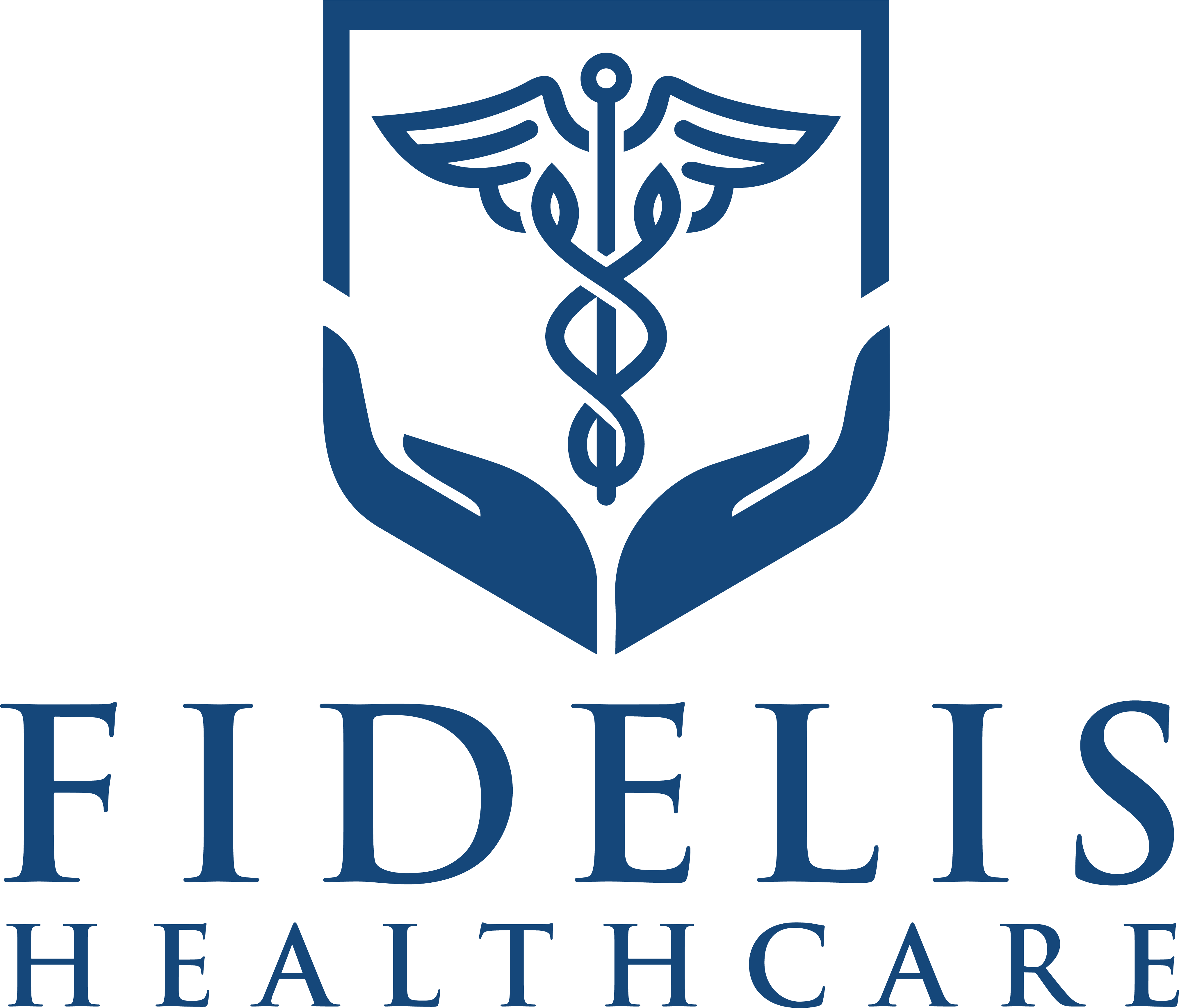Temporary healthcare workers play a crucial role in maintaining the continuity of care, particularly in the dynamic and often high-demand environment of UK healthcare. From bustling NHS hospitals to private care homes, the integration of temporary nurses and carers ensures that patient care remains uninterrupted, even in the face of staffing shortages. At Fidelis Healthcare, we understand the value of seamless transitions for these professionals and the positive impact they have on patient outcomes and team morale.
In this guide, we will explore the best practices for integrating temporary healthcare workers effectively, ensuring they can contribute their skills efficiently while maintaining the high standards of care expected in healthcare settings.
Why Integration Matters for Temporary Healthcare Workers
The success of any healthcare setting depends significantly on the efficiency of its staff. However, the frequent turnover associated with temporary healthcare workers can sometimes create disruptions. Ensuring a smooth integration process for these professionals is essential to minimize the risk of operational hiccups, maintain high levels of patient care, and ensure the satisfaction of both permanent and temporary staff.
An effective onboarding strategy helps temporary staff quickly familiarize themselves with the setting’s procedures, standards, and team dynamics, ultimately fostering a more cohesive working environment.
Establishing Clear Communication Channels
Good communication is the cornerstone of successful integration for temporary healthcare workers. Whether it’s relaying patient care instructions or ensuring that staff are aware of shift changes, clear and concise communication ensures there is no room for error.
Temporary healthcare workers often need to get up to speed quickly. As such, the availability of open communication channels from the onset can enhance their ability to assimilate faster into the team. Managers should provide:
- A clear briefing upon the start of shifts, including key priorities.
- Easy access to key contacts within the team, including team leaders and supervisors.
- Digital or written guides detailing standard protocols and procedures specific to that healthcare setting.
Comprehensive Orientation and Induction Programmes
Temporary healthcare workers benefit greatly from structured orientation and induction programmes, which ensure they are properly introduced to the organisation’s working culture, procedures, and policies. While time constraints are often a challenge, even a condensed version of a typical induction programme is invaluable.
- Introduction to Team Members: Familiarising temporary workers with the team helps build rapport quickly. In a fast-paced environment, knowing who to turn to for assistance is critical.
- Familiarisation with Equipment and Systems: Each healthcare setting often uses different software systems or equipment. Ensuring temporary workers receive a brief overview of these tools helps them hit the ground running.
- Overview of Patient Care Protocols: An introduction to key policies regarding patient care, safety procedures, and emergency protocols ensures consistent patient care, regardless of whether a worker is temporary or permanent.
Creating a Supportive Environment
Healthcare environments can be intense, especially for temporary workers who may be juggling shifts across multiple facilities. Providing them with the support they need to succeed not only improves their experience but enhances the overall care delivered to patients.
- Assigning a Mentor or Buddy: Pairing temporary workers with a more experienced permanent staff member offers a valuable support system. The mentor can guide them through routines and procedures, answer questions, and help ease any anxieties about working in a new environment.
- Regular Check-ins: Scheduling brief check-ins throughout their assignment enables managers to gauge how well temporary staff are adapting and to address any concerns promptly.
- Access to Resources: Ensuring that temporary workers have access to key resources, whether physical or digital, ensures they are well-equipped to perform their roles effectively. This could include access to manuals, policies, or training modules.
Integrating Temporary Workers into the Team Culture
Fostering a sense of belonging among temporary healthcare workers boosts morale and promotes collaboration. While they may only be present for a short time, temporary workers should be made to feel as valued members of the team.
- Involving Them in Team Activities: Including temporary staff in team meetings, social activities, or briefings fosters a sense of inclusion and boosts team cohesion.
- Recognising Their Contributions: Offering praise or acknowledging the efforts of temporary workers ensures that they feel appreciated, which can motivate them to deliver high-quality care consistently.
- Feedback Mechanisms: Providing temporary workers with constructive feedback helps them improve their skills and adjust to the expectations of the healthcare setting.
Tailoring Work Assignments to Skills and Experience
Not all temporary healthcare workers come with the same level of experience or skill set. Ensuring that assignments are tailored to their capabilities is essential for both patient safety and worker satisfaction.
- Assessing Skills During Orientation: An initial skills assessment can help managers allocate tasks that align with the temporary worker’s expertise. This ensures they are neither under-challenged nor overwhelmed.
- Clear Job Roles and Responsibilities: Setting out specific duties and responsibilities helps temporary workers understand their role within the wider team, enabling them to focus on delivering care confidently and competently.
Technology as a Tool for Integration
In today’s healthcare environment, technology is a vital part of integrating temporary healthcare workers. By leveraging technology, healthcare settings can streamline the onboarding process, reduce administrative burdens, and provide more immediate support for temporary staff.
- Automated Scheduling Systems: Allowing temporary workers to access shift patterns, rotas, and even request changes via automated systems reduces confusion and fosters better time management.
- Digital Learning Platforms: Providing temporary workers with access to online training modules on key protocols or new equipment can enhance their understanding of the facility’s operations, even before their shift begins.
- Instant Messaging and Communication Apps: Encouraging the use of secure communication platforms can facilitate real-time updates and quick responses to questions, ensuring that temporary staff stay informed and can swiftly adapt to any changes during their shifts.
Ensuring Compliance with Regulations
Temporary healthcare workers are still bound by the same legal and regulatory frameworks as permanent staff. Therefore, healthcare settings must ensure that all temporary workers are fully compliant with local and national regulations, including:
- Valid Registration and Certifications: Ensuring temporary nurses and carers have valid registrations with governing bodies such as the Nursing and Midwifery Council (NMC) or the Health and Care Professions Council (HCPC).
- Up-to-date Training: Temporary workers should have completed mandatory training in areas such as infection control, safeguarding, and data protection. Regular audits of their credentials should be conducted to maintain compliance.
- Health and Safety Protocols: Temporary workers must be familiar with and adhere to the facility’s health and safety regulations, ensuring the well-being of both patients and staff.
Flexible Staffing Solutions: Maximising the Benefits of Temporary Workers
Temporary healthcare workers bring flexibility to healthcare settings, offering a solution to staff shortages, unexpected absences, or high demand periods. By optimising their integration, organisations can take full advantage of the benefits temporary workers provide, ensuring they not only fill gaps but contribute meaningfully to patient care.
With Fidelis Healthcare, we pride ourselves on providing highly skilled nurses and carers who are ready to integrate seamlessly into your team. Our stringent recruitment processes and comprehensive support for our temporary workers ensure they are prepared to deliver the best possible care, no matter where they are placed.
FAQs
What are the benefits of integrating temporary healthcare workers effectively?
Effective integration minimises disruption, improves patient care continuity, and boosts team morale, ensuring smooth operations in healthcare settings.
How can healthcare facilities ensure that temporary workers comply with regulations?
Facilities should conduct regular audits of temporary workers’ certifications and ensure they have completed all required training in health and safety protocols.
Why is communication important for temporary healthcare workers?
Clear communication ensures that temporary staff understand their roles, know who to approach for help, and are updated on any changes during their shifts.
How can technology aid the integration of temporary healthcare staff?
Technology streamlines the onboarding process, improves access to essential resources, and allows for real-time communication, enhancing the overall experience for temporary workers.
What support systems are recommended for temporary healthcare workers?
Pairing temporary workers with a mentor and providing regular check-ins can help them adapt more quickly and feel supported in their roles.
How should work assignments be tailored for temporary healthcare workers?
Assigning tasks based on a temporary worker’s skill level ensures that they are neither overwhelmed nor under-utilised, allowing them to contribute effectively.
Integrating temporary healthcare workers seamlessly into a healthcare setting is a critical task that requires careful planning and execution. By providing comprehensive orientation, fostering a supportive environment, utilising technology, and ensuring regulatory compliance, healthcare facilities can enhance the contributions of temporary staff, ensuring both high standards of care and staff satisfaction. At Fidelis Healthcare, our commitment to excellence ensures that the temporary workers we provide are not only highly skilled but are prepared to integrate quickly and effectively into any team. This holistic approach benefits both healthcare providers and patients, guaranteeing quality care across all settings.

